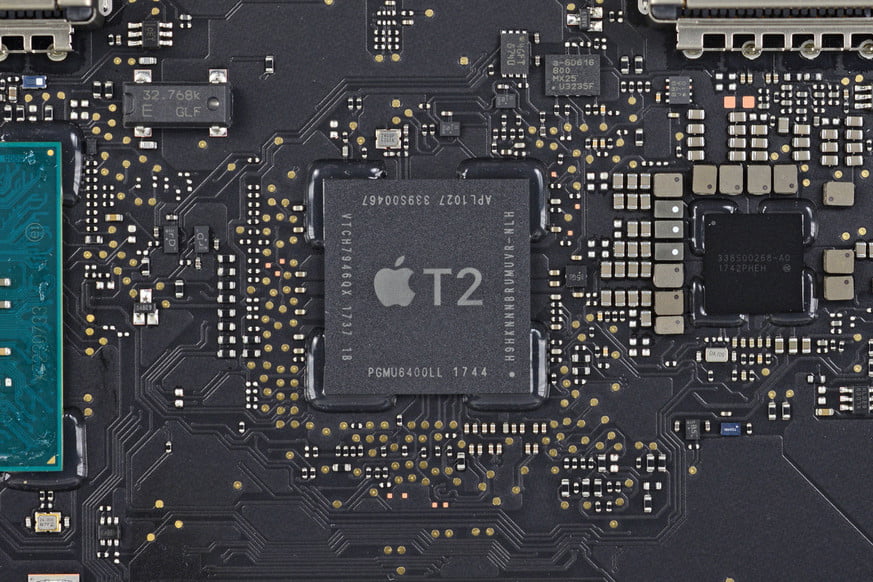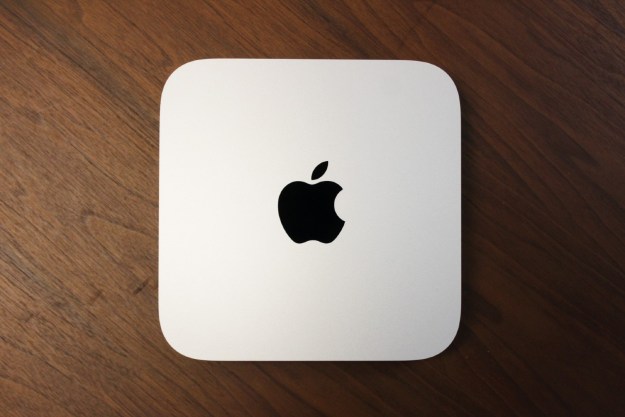
When Apple announced that its 2018 MacBook Pro would feature the company’s T2 coprocessor, a chip that handles the encryption of the unit’s internal SSD, it led to speculation of whether data could be adequately recovered in the event of a failure. However, internal documents from Apple showcase a procedure allowing its technicians to retrieve data from a system with the T2 coprocessor provided that the machine’s logic board is at least still partially functioning.
The Apple T2 coprocessor doesn’t only handle the MacBook Pro’s storage encryption; the chip works to secure functions such as the machine’s boot process and Touch ID functionality. Documentation from Apple also notes that the custom silicon works with the FaceTime camera to enable tone mapping, along with improved exposure and white balance. But, how do these functions keep your data from possibly being restored?
With previous versions of Apple’s MacBook lineup, the company implemented a connector on the logic board for data recovery. However, after the launch of the 2018 MacBook Pro, the connector was removed, leaving speculation that due to the T2 chip’s enhanced encryption, any data recovery would be rendered impossible.
Technical documentation meant for Apple’s repair team shows that data recovery of a machine hosting the company’s new T2 chip would still be possible thanks to a new diagnostics tool and procedure. It is noted that the computer must be able to power on, but once that is accomplished, the MacBook Pro can be hooked up to a host machine where an internal diagnostics tool will transfer the data to an external storage device.
Apple’s documentation notes that depending on the amount of data on a customer’s machine, it can take up to two days for the data to fully transfer. As the company’s new MacBook Pro laptops can host up to 2TB of data on an internal SSD, most customers with a smaller 256 GB or 512 GB SSD will likely find the recovery process a bit faster.
Increased encryption of a drive’s data is an excellent way to ensure that information contained doesn’t fall into the wrong hands, and Apple’s T2 coprocessor is helping customers stay secure. However, if the system’s coprocessor was to fail, or if the logic board was to face detrimental damage, it is unlikely that Apple would be able to recover the data. Always remember that the best way to avoid losing data is proactive, so take time to back up your machine.
Editors' Recommendations
- Why Samsung’s answer to the MacBook Pro can’t quite compete
- Apple 16-inch MacBook Pro: don’t make a mistake you’ll regret
- Whatever you do, don’t buy a MacBook Pro right now
- Apple’s serious miscalculation with the 15-inch MacBook Air
- Should you buy the M2 MacBook Pro or wait for the M3?


